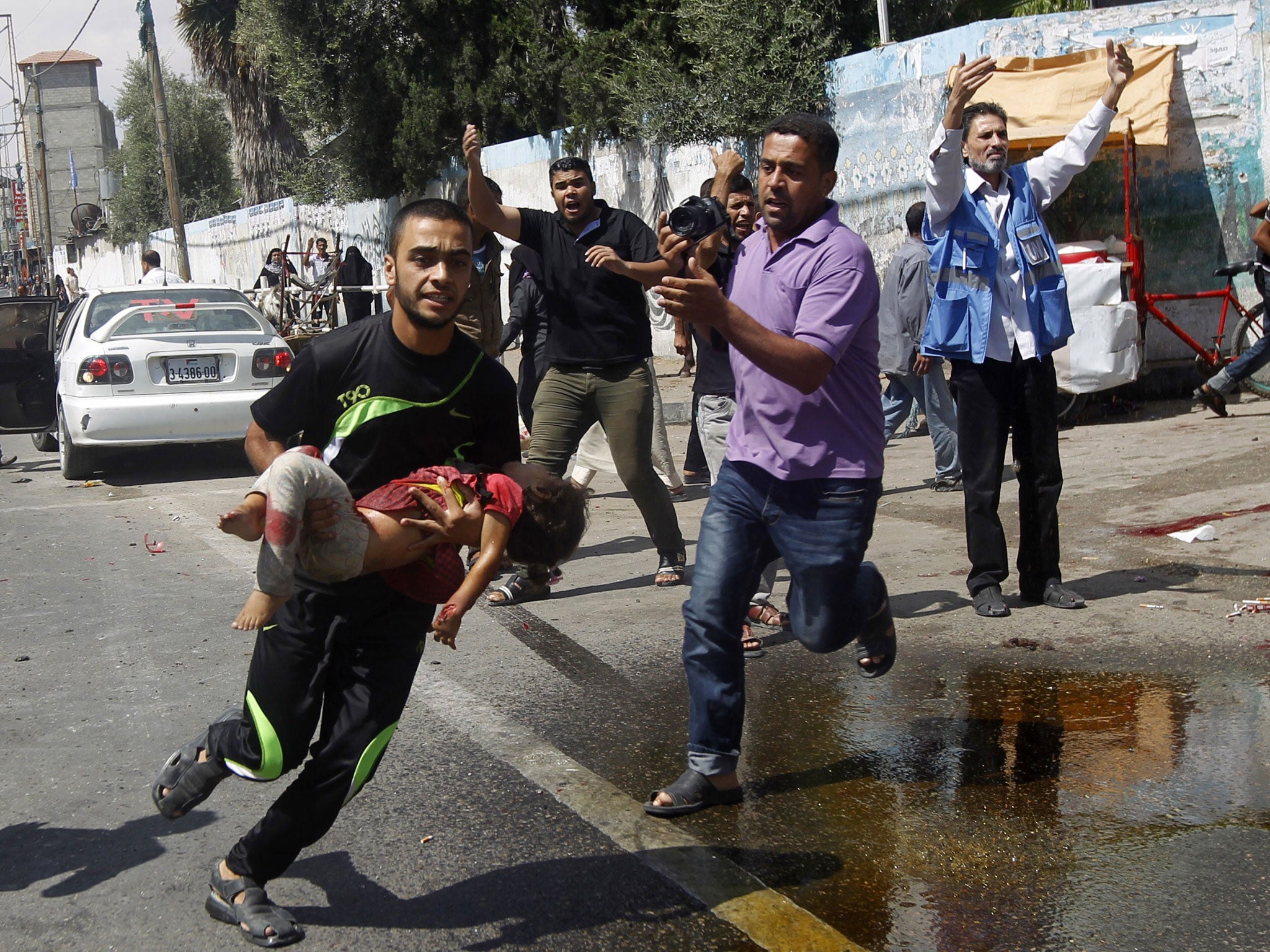You might not have heard of the ‘Hannibal Protocol’, but it's behind one of Israel's worst atrocities yet
What's more, the Israeli colonel behind it all seems to think it was divine

Your support helps us to tell the story
From reproductive rights to climate change to Big Tech, The Independent is on the ground when the story is developing. Whether it's investigating the financials of Elon Musk's pro-Trump PAC or producing our latest documentary, 'The A Word', which shines a light on the American women fighting for reproductive rights, we know how important it is to parse out the facts from the messaging.
At such a critical moment in US history, we need reporters on the ground. Your donation allows us to keep sending journalists to speak to both sides of the story.
The Independent is trusted by Americans across the entire political spectrum. And unlike many other quality news outlets, we choose not to lock Americans out of our reporting and analysis with paywalls. We believe quality journalism should be available to everyone, paid for by those who can afford it.
Your support makes all the difference.While Israel and Hamas are still looking for ways to end their Gaza war, the UN Human Rights Council has appointed a three-member panel to investigate allegations that humanitarian law was violated in the Gaza Strip during the fighting, in a manner that could amount to war crimes.
Close to 2,000 Palestinians have so far been killed in Gaza, a majority of them civilians, while the Israelis have lost 64 soldiers and three civilians. On past precedent, Israel is highly unlikely to co-operate with any UN investigation.
That was Israel’s position with the Goldstone inquiry into Operation Cast Lead in 2008-9, in which 1,400 Palestinians were killed. What the Israelis will do is to conduct their own investigations, insisting that as Israel investigates itself, there is no need for an external body to do the same.
But there are serious deficiencies in the Israeli self-investigation practice, as the tendency there is not to take disciplinary or criminal actions against those involved in wrongdoings, and the inquiries are not transparent.
The UN team, no doubt, will look into IDF attacks on schools and hospitals during the Gaza war, but I strongly believe that their first priority, and top on their list of incidents-to-be-investigated should be the events that took place in Rafah in the southern Gaza Strip on Friday, August 1. There are three words that define this day: "The Hannibal Protocol".
On August 1, a humanitarian truce was due to start at 8am. Israeli forces, however, continued to search for Hamas tunnels. On one occasion infantry troops of the Givati brigade approached a house from where they were fired at. A battle ensued. Two Israeli troops were killed and a third, Lt Hadar Goldin, could not be seen. It was assumed that he was abducted by Hamas militants.
In the Israeli psyche, since their Lebanon wars, an abducted soldier is a nightmare. The captors often manage to use the soldier as a bargaining chip to squeeze major concessions from Israel, such as the release of Palestinian prisoners from Israeli jails.
As a result, the Israeli army came up with its “Hannibal Protocol”. Concocted during Israel's Lebanon offensive in the 80s, it allows the IDF to use massive firepower to prevent the kidnapping of any soldier in the minutes and hours after they're seized.
This procedure was fine for Lebanon, as the areas where it was used were open lands and sparsely populated. But on August 1, when the Hannibal Protocol was used in an attempt to thwart the capture of Lt Goldin, the area was Rafah — one of the most densely populated areas on earth. The results were devastating.
The Israeli forces didn't give the Palestinians of Rafah any warning, but embarked on the most aggressive bombing campaign of Operation Protective Edge. Airplanes struck Rafah 40 times, dropping massive bombs on its civilian neighbourhoods, and heavy artillery pumped more than 1,000 shells into the area. Tanks also invaded, firing in all directions, and heavy bulldozers moved in to flatten scores of houses on the heads of people who were still inside.
Palestinians who did manage to jump into cars to escape the inferno were shot at, and cars carrying injured civilians trying to approach the Rafah hospital were also attacked. The blitz lasted three hours and killed more than 150 Palestinians. It also injured hundreds of others, having buried them under the rubble.
The colonel who orchestrated the assault on Rafah was Ofer Winter, the commander of the Givati Brigade. A religious settler, on the eve of the Gaza war he dispatched a letter to his troops, laden with biblical references, which perhaps explains the ferocity with which they attacked Rafah.
What Colonel Winter called on his troops to do was, effectively, to conduct a religious war on Gaza. Here are some quotes from his letter:
"History has chosen us to be the sharp edge of the bayonet of fighting the terrorist enemy from Gaza which curses, defames and abuses the God of Israel’s battles … We will… wipe out the enemy… Using all means at our disposal and with all required force… I turn my eyes to the sky and call with you ‘Hear, O Israel: The Lord our God is one Lord.’ God, the Lord of Israel, make our path successful, as we are about to fight for Your People, Israel, against an enemy who defames your name."
Colonel Winter managed to wipe out many Palestinians — but alas, they were non-combatant civilians. Therefore his actions, as well as those working with him, must be thoroughly investigated by the UN to establish whether it amounted to war crimes. We cannot allow The Hannibal Protocol to be used in such a way again.